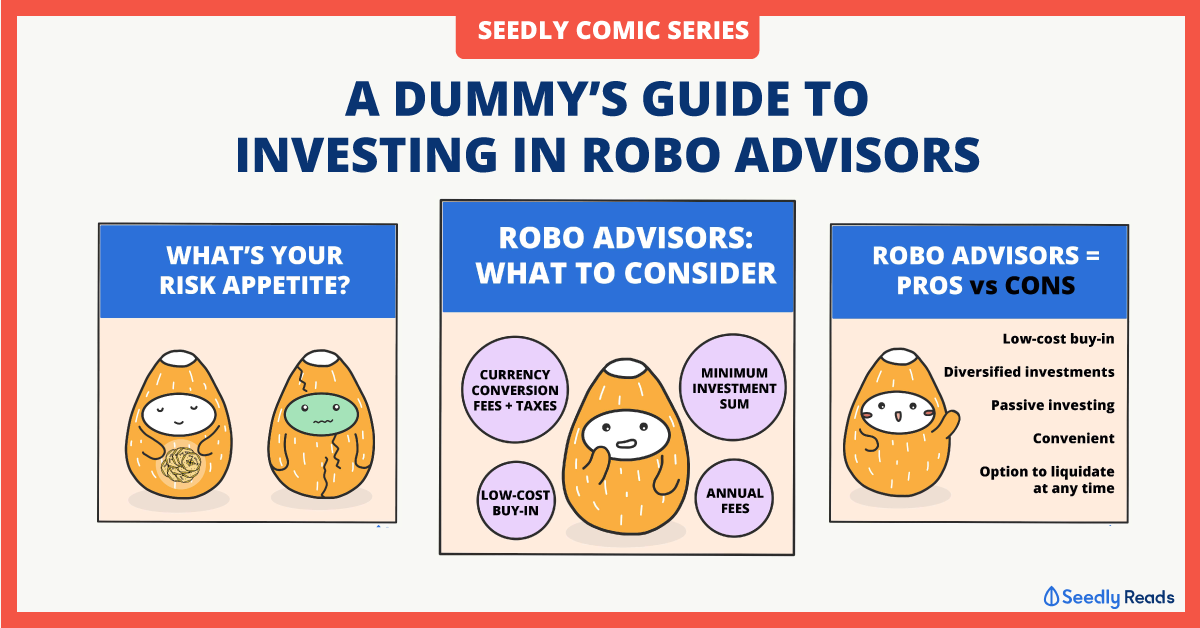Advertisement
Anonymous
Are robo-advisors a good platform for long-term investments?
What is the optimal total capital to have with roboadvisors in terms of cost? I am worried the fees would become too expensive with higher capital. Are there any other alternative platforms for long-term investments of 30-40 years?
5
Discussion (5)
Learn how to style your text
Zac
07 Feb 2021
Noob at Idiots Invest
Reply
Save
Different platforms have different fees but generally they decrease as you put in more money. You are essentially paying for the convinience of having their platform manage your investments.
In the long term, most robo-advisor should be fine as they track ETFs. The fees will give you smaller returns but you should still make a decent % back unless you really want to min-max everything.
For the lowest fees nothing beats DIY where you only pay per transaction. TD ameritrade and tiger are currently the more popular options.
Reply
Save
Randy
07 Feb 2021
Financial Analyst at
If you are a CEO of a robo company, will you create a fee structure that will have an optimised numb...
Read 1 other comments with a Seedly account
You will also enjoy exclusive benefits and get access to members only features.
Sign up or login with an email here
Write your thoughts
Related Articles
Related Posts
Related Products

StashAway
4.7
1295 Reviews
StashAway Simple Guaranteed 3.55% p.a. (Guaranteed rate)
Cash Management
INSTRUMENTS
None
ANNUAL MANAGEMENT FEE
None
MINIMUM INVESTMENT
3.5%
EXPECTED ANNUAL RETURN
Mobile App
PLATFORMS

Endowus
4.7
658 Reviews

Syfe
4.6
934 Reviews
Related Posts
Advertisement









Imagine a simplistic scenario where a digital advisor charges a tiered fee range of 0.2 - 0.8%, whereby a 0.8% flat fee is charged up to $20,000 and fee is reduced to 0.2% if AUM is $200,000 and above.
If you park $10,000 with them, they earn $80 of fees. You pay 0.8& fees.
If you park $200,000 with them, they earn $400 of fees. You only pay 0.2% fees.
As Randy has pointed out, the business model of the company has to be such that it is profitable. That means generating more revenue.
For the above simplified example, there's two ways to generate more revenue - higher fees, or higher AUM. Since revenue is fee % x AUM, if robo-advisors want to decrease fees for their clients, they can increase their revenue by incentivising clients to invest more funds with them, to achieve lower fees.